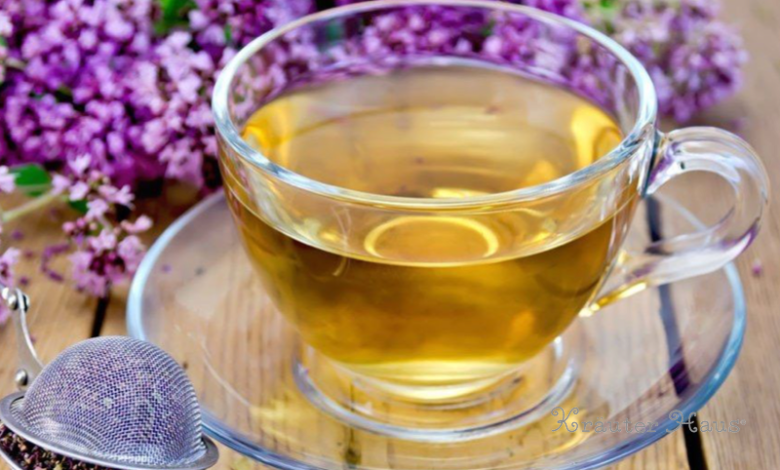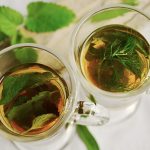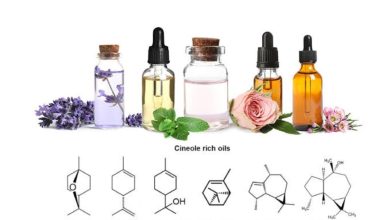10 Best Teas for Hormone Balance

In the fast-paced world we live in, maintaining hormonal balance is crucial for overall well-being. Hormones play a vital role in regulating various bodily functions, affecting mood, energy levels, metabolism, and more. Hormonal imbalances occur when there is too much or too little of a hormone in the blood. Common symptoms include weight changes, lower sex drive, and acne, but depends on which hormone is out of balance.
Hormones are chemicals produced by glands in the endocrine system. Hormones travel through the bloodstream to the tissues and organs, delivering messages that tell the organs what to do and when to do it.
Hormones are essential for regulating most major bodily processes, so a hormonal imbalance can affect many bodily functions. Hormones help to regulate:
• metabolism
• blood sugar
• growth
• blood pressure
• reproductive cycles and sexual function
• general growth and development
• mood and stress levels
Imbalances in insulin, steroids, growth hormones, and adrenaline can affect males and females alike.
Females may also experience imbalances in estrogen and progesterone levels, while males are more likely to experience imbalances in testosterone levels.
Symptoms
The symptoms of a hormonal imbalance can vary according to which gland is affected and whether the person is male or female.
Symptoms in females
In women, the symptoms more frequently include:
• mood swings
• constipation or diarrhea
• irregular menstrual cycle
• infertility
• pain in the abdomen or the back during menstruation
• low sex drive
• insomnia
• unexplained weight gainTrusted Source or weight loss
• brittle bones
• hirsutism, or excessive hair growth
• rashes on the skin
Symptoms in males
When a male has low testosterone levels, their symptoms will typically include:
• decrease in sex drive
• erectile dysfunction (ED)
• loss of muscle mass
• thinning hair and reduced hair growth
• tenderness in the area of the chest
Best Tea For Hormone Balance
While there are several ways to support hormonal health, one natural and soothing approach is through the consumption of tea. There are several herbal infusions and traditional brews that support hormonal health. Here are the 10 best teas for hormone balance:
1. Chasteberry Tea: Chasteberry, scientifically known as Vitex agnus-castus, stands as a time-honored remedy for addressing hormonal imbalances, particularly in women. With roots tracing back through centuries, Chasteberry tea has gained popularity for its potential to regulate menstrual cycles, alleviate premenstrual syndrome (PMS) symptoms, and offer support to fertility.
The magic lies in Chasteberry’s influence on the pituitary gland, a small but mighty organ located at the base of the brain. Research suggests that Chasteberry can act on the pituitary gland, helping to maintain a harmonious production of hormones. This delicate balancing act can be particularly beneficial for women grappling with irregular menstrual cycles or hormonal fluctuations affecting their fertility.
2. Maca Root Tea: Derived from the high-altitude plateaus of Peru, Maca root tea has emerged as a powerhouse in the realm of adaptogenic teas. Recognized for its ability to adapt to the body’s unique needs, Maca root tea plays a crucial role in balancing hormones by providing support to the endocrine system.
For women navigating the challenging waters of menopause, Maca root tea can be a comforting ally. Its adaptogenic properties assist the body in adjusting to hormonal fluctuations, potentially easing symptoms like hot flashes and mood swings. The adaptogenic nature of Maca root makes it a versatile companion for women at different stages of life.
3. Spearmint Tea: Spearmint tea, with its invigorating flavor and aroma, has found its way into the hearts of those seeking hormonal balance, especially in the context of Polycystic Ovary Syndrome (PCOS). Research suggests that regular consumption of spearmint tea may lead to a reduction in androgen levels, the hormones often elevated in individuals with PCOS.
Beyond its potential impact on androgen levels, spearmint tea offers a refreshing and caffeine-free option for those looking to incorporate a natural approach to hormonal harmony. Whether enjoyed hot or cold, the crisp taste of spearmint adds a delightful twist to the journey of achieving hormonal balance.
4. Red Clover Tea: Rich in isoflavones, Red Clover tea emerges as a delightful brew with the potential to mimic estrogen in the body. This mimicry can be a game-changer for women navigating the intricate terrain of menopause, providing relief from bothersome symptoms such as hot flashes and mood swings.
The isoflavones in Red Clover contribute to its estrogen-like effects, offering a gentle and natural alternative to hormone replacement therapy. As a result, Red Clover tea stands as a comforting companion for women seeking solace in a cup during the menopausal transition.
5. Holy Basil Tea: Known as Tulsi in traditional medicine, Holy Basil tea steps onto the stage as an adaptogenic herb with a unique ability to support the adrenal glands. The adrenal glands play a pivotal role in the body’s stress response system, and Holy Basil tea contributes to maintaining balance in this intricate network.
By fostering equilibrium in the stress response system, Holy Basil indirectly supports hormonal balance. As stress has a profound impact on hormone levels, incorporating Holy Basil tea into one’s routine becomes a soothing ritual that transcends beyond the teacup, offering a holistic approach to well-being.
6. Nettle Leaf Tea: Nettle leaf tea, a nutrient-dense infusion, goes beyond the ordinary in its support for the endocrine system. Packed with essential minerals like iron and magnesium, Nettle leaf tea becomes a nourishing elixir for those seeking hormonal balance.
Its gentle yet effective support makes Nettle leaf tea particularly useful for individuals facing challenges such as adrenal fatigue or thyroid issues. As an added bonus, the rich nutrient profile of this herbal tea contributes to overall health, making it a wholesome choice for those on a quest for hormonal harmony.
7. Ashwagandha Tea: Ashwagandha, an esteemed adaptogenic herb, has earned its reputation for its stress-relieving properties. Chronic stress can wreak havoc on hormonal balance, leading to disruptions in cortisol levels. Ashwagandha tea steps in as a calming force, aiding in the reduction of cortisol levels and contributing to overall hormonal equilibrium.
For individuals dealing with the persistent challenges of chronic stress, incorporating Ashwagandha tea into their routine may offer a reprieve. This ancient herb, with its roots deeply embedded in traditional medicine, holds the promise of a more balanced and resilient response to life’s stressors.
8. Raspberry Leaf Tea: Raspberry leaf tea, often associated with women’s health and pregnancy, unfolds its benefits beyond the maternity ward. This herbal infusion has been traditionally used to tone the uterus and regulate menstrual cycles, promoting a sense of hormonal harmony.
For women at various stages of life, from adolescence to menopause, Raspberry leaf tea stands as a versatile companion. Its gentle support for the reproductive system makes it a tea of choice for those seeking a natural and nurturing way to embrace their feminine well-being.
9. Dong Quai Tea: Dong Quai, also known as Angelica sinensis, steps forward as a traditional Chinese herb celebrated for its support of women’s reproductive health. Dong Quai tea, derived from the root of the plant, may play a pivotal role in regulating estrogen levels, offering valuable support to women experiencing hormonal fluctuations.
As an herbal ally for hormonal balance, Dong Quai tea brings centuries of wisdom to modern-day challenges. Its subtle yet effective influence on estrogen levels makes it a cherished tea in the repertoire of women seeking a holistic approach to reproductive well-being.
10. Turmeric Tea: Turmeric tea, infused with the golden spice’s active compound, curcumin, takes center stage for its anti-inflammatory prowess. Inflammation is a common thread in conditions associated with hormonal imbalances, such as Polycystic Ovary Syndrome (PCOS). Turmeric tea, with its ability to modulate inflammation, becomes a beacon of hope for those seeking relief.
Beyond its anti-inflammatory properties, turmeric tea offers a host of health benefits, making it a versatile addition to a balanced lifestyle. As a warming and comforting brew, turmeric tea becomes more than a beverage; it becomes a holistic tonic for those on a journey toward hormonal harmony.
In embracing the diverse world of herbal teas, each cup becomes a step toward achieving hormonal balance. Whether seeking relief from specific symptoms or proactively supporting overall well-being, these ten teas stand as nature’s elixirs, inviting individuals to sip their way to a more harmonious and balanced life.
Conclusion
In a world where stressors are abundant, finding natural ways to support hormonal balance is essential for overall health. These ten teas, each with its unique properties, offer a comforting and effective approach to promoting hormonal harmony. Whether you’re seeking relief from menstrual symptoms, navigating menopause, or aiming for general well-being, incorporating these teas into your routine may be a delightful and holistic solution. As with any dietary changes, it’s advisable to consult with a healthcare professional to ensure these teas align with your individual health needs. Embrace the soothing ritual of tea-drinking and let nature’s elixirs guide you towards a more balanced and harmonious life.





